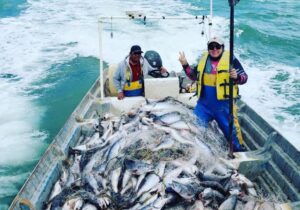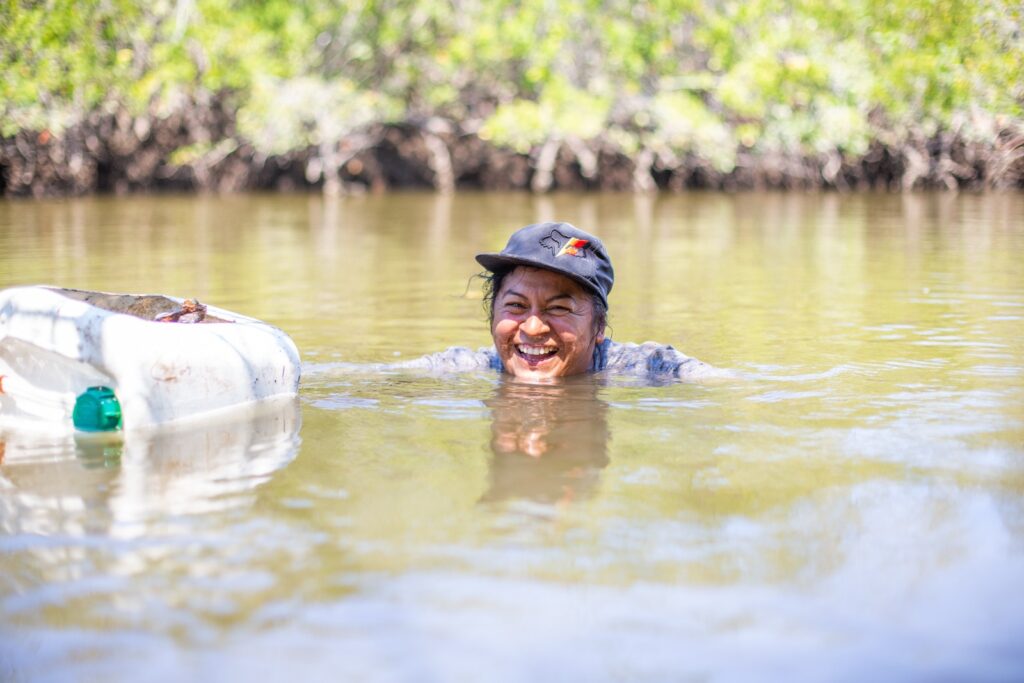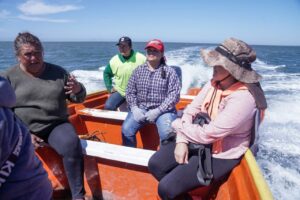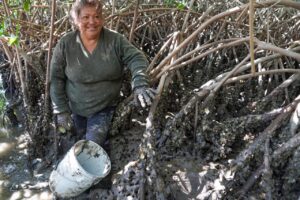In the fishing grounds of the states that make up the Sea of Cortés Regionthe women are becoming more and more important in this productive sector and are the ones who are charting the course of fishing.
Yanet Castro Medinaof Altata; Celia Acostaof Las Arenitas, both in the center of Sinaloa, and Miriam PerezThe women of the Gulf of Santa Clara, in Sonora, are some of those women who have paved the way for the voice and opinion of women to be heard not only in their communities, but also before civil society organizations, research institutions and government agencies.
"What we have always wanted to do is to rescue fishing among all of us, that we are one voice, that the fishing families work together, men and women, and that's where we are going. The best thing we can do is to work together, hand in hand, men and women, and all the instances that have the power to transform fishing from the government and science", commented Catro Medina in recent days during a Zoom meeting that Trazando el Rumbo de la Pesca called to commemorate its third anniversary.
What is Charting the Fishing Course?
This is a virtual community which was born from the initiative of a group of women from different fishing camps who, during the Covid-19 pandemic, found the need to communicate about what was happening in their coastal towns with the activity that provides their families with their livelihood.
Although it was women like Yanet, Celia and Miriam who created this space, it is not exclusive and men also participate. Everyone who has something positive to contribute to improve fishing and the communities that depend on it is welcome.
Through social networks such as Facebook, Twitter, Instagram and Youtube. Charting the Fishing Course conducts webinars, talks, training, workshops and different types of activities aimed at promoting sustainable fishing, in order to change the mentality that the sea is an inexhaustible source of fishery resources, which for many years permeated among fishermen.
"We have dealt with different issues in these three years since we started and we have made the sector more aware. Today there are more and more committed fishermen. Trazando el Rumbo is a spokesperson for sustainable fishing, we know that the future of fishing is through sustainable fishing," Castro Medina emphasized.
However, he insisted that every day it is more important for the sector to work together and for government agencies and organizations to listen to what they have to say and the opinions they can contribute, because it is the fishermen and fisherwomen who experience the problems every day and are the ones who know the sea.

We owe a lot to fishing
The effort to promote sustainable fishing made by the women of the Sea of Cortez has not gone unnoticed and many organizations have joined in.
The Environmental Defense Fund (EDF), Pronatura Noroeste AC, WWF Mexico, Initiative for the Seas and Coasts of Mexico, COBI, Niparajá, Smartfish, Oceana, Causa Natura and the Small-Scale Fisheries Resources Collaboration Center (SSF Hub) are some of the organizations or agencies that are supporting the Charting the Fishing Course.
"Historically, government and society owe a lot to fishing and it is never too late to start giving back to the sea everything it has given us," said Liliana Gutiérrez Mariscal.
The coordinator of the Initiative for the Seas and Coasts of Mexico recognized the work that this virtual community is doing in favor of sustainable fishing.
"You have to love something very much to persevere as they have persevered and for me that is the core of this effort, the deep love for fishing, for the women and men who make this activity possible in the country and the awareness of the importance of the families and communities that inhabit the coasts of Mexico," he said.
He encouraged to keep this project alive, which was born out of a need for communication for the exchange of ideas and experiences in fishing, and to reach the consciences of more fishermen and fisherwomen to give this productive sector the new direction it needs.




